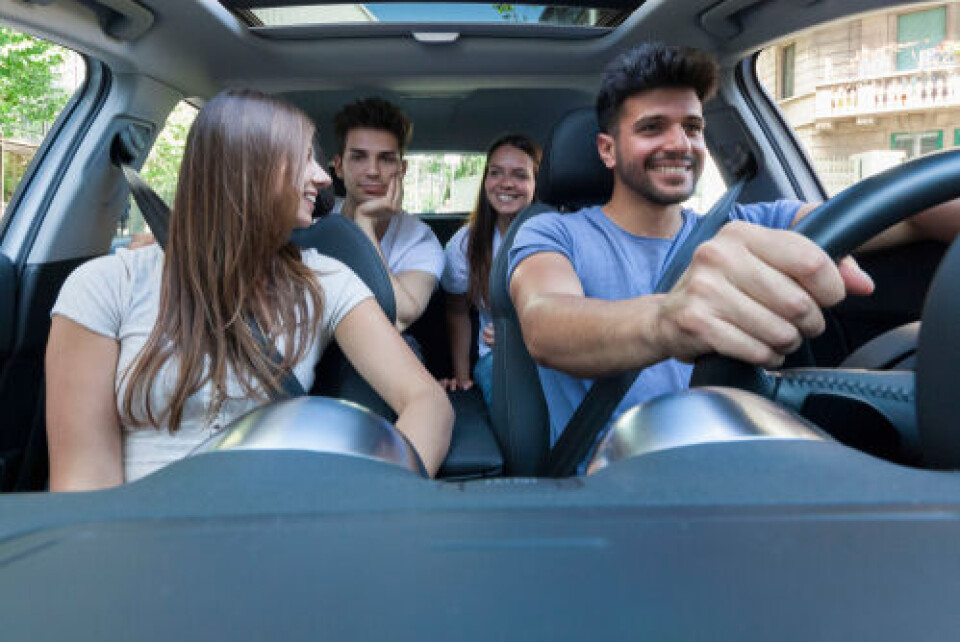-
White storks make strong return in France via nest ‘platforms’ and clipped wings
The Ligue pour la Protection des Oiseaux shares the conservation challenges in saving these birds from extinction
-
Leclerc supermarkets to sell car fuel at cost price for Easter
The initiative will apply to diesel, petrol, and LPG
-
Map: Car insurance costs rise in France - see the average in your region
Multiple studies show that costs are rising by around 5% year-on-year, with major differences by region and vehicle model
Drivers to be given up to €100 to start car sharing in France
The aid will be given in a bid to treble the number of car-sharing journeys

Car sharers in France are to receive up to €100 each in 2023 as part of government plans to reach three million journeys per day, up from the current 900,000.
The government today announced that the payments would be given to all drivers who sign up to a car-sharing app and use the service for the first time in 2023.
Drivers will receive “at least” €25 on sign-up and the rest after they complete 10 journeys in the three months after their first journey.
The money will be paid by the car-sharing platforms themselves, with the funds coming from the state. The payment is intended to help “accelerate the practice”, the government said (pun intended).
The measure is part of several to be announced as part of the government’s new multimillion national ‘covoiturage du quotidien (2023-2027)’ (daily car sharing) plan. Car sharing is ‘covoiturage’ in French, and it sometimes appears on signs denoting special lanes or areas for these vehicles.
Car sharing is defined as two or more people, who may or may not know each other, sharing a car for a joint journey, instead of taking separate vehicles. The practice is intended to be more environmentally friendly and reduce the number of single-driver vehicles on the roads.
Local authority support: Extra car-sharing lanes?
The government’s new plan is also set to offer funds to local authorities and companies that help make car sharing easier. For each euro spent, the government will match it.
The statement said: “This is extra funding for groups that are already offering financial incentives to car sharers.”
The plan also has €50million set aside for projects that will “make journeys easier wherever possible”. For example, new service stations dedicated to car sharers could be built, or special lanes could be opened for car-sharing vehicles.
The sum is part of the ‘Fonds vert’ (Green fund) money, and will be dedicated to local authorities that implement measures to make car sharing easier.
The government is aiming to enable three million car-sharing journeys per day, more than three times the current level of 900,000.
A ministerial committee dedicated to “bringing together the interested parties” for the plan is set to be created in the first quarter of 2023. It comes after Prime Minister Elisabeth Borne had already announced measures to encourage more car sharing for the period 2019-2022.
How can I car share in France?
The practice is mainly organised through smartphone apps.
One of the best-known in France is BlaBlaCar. Founded in Paris in 2006, the app now has 100 million members across 22 countries in Europe and South America. 25 million are regularly active on the app.
It brings people together, joining drivers with other passengers who are making a similar journey. The users then share the cost. This makes it cheaper to travel, as the users share petrol costs, and also reduces the number of cars on the road.
The app also emphasises the community aspect of the practice. It has levels for users, including ‘Bla’ for people who do not chat much, ‘BlaBla’ for people who like to talk, and ‘BlaBlaBla’ for users who never stop talking.
BlaBlaCar was originally called Coivoiturage.fr.
Other similar apps and websites include LaRoueVerte, Mobicoop, and UberXShare.
UberXShare is a function on the existing Uber taxi app. It searches for other people ordering similar journeys nearby and offers you the option to share the same vehicle and split the ride cost.
Related articles
Use of car-sharing apps soars in France as fuel prices hit €2 a litre
What must car-sharers know about insurance and tax?
























